Spontaneous Speaking & Listening with the South Wales Sanako Group Talk Project
Spontaneous Speaking & Listening with the Sanako Group Talk Project. Following on from the success of the Sanako MFL Hub school project in North Wales (GwE Consortia), Sanako UK is pleased to support the innovative Group Talk project in South Wales (EAS Consortia). Based upon the successful and exciting MFL pedagogy of Greg Horton and his method of getting students speaking, listening & debating in a target language spontaneously has a proven track record.
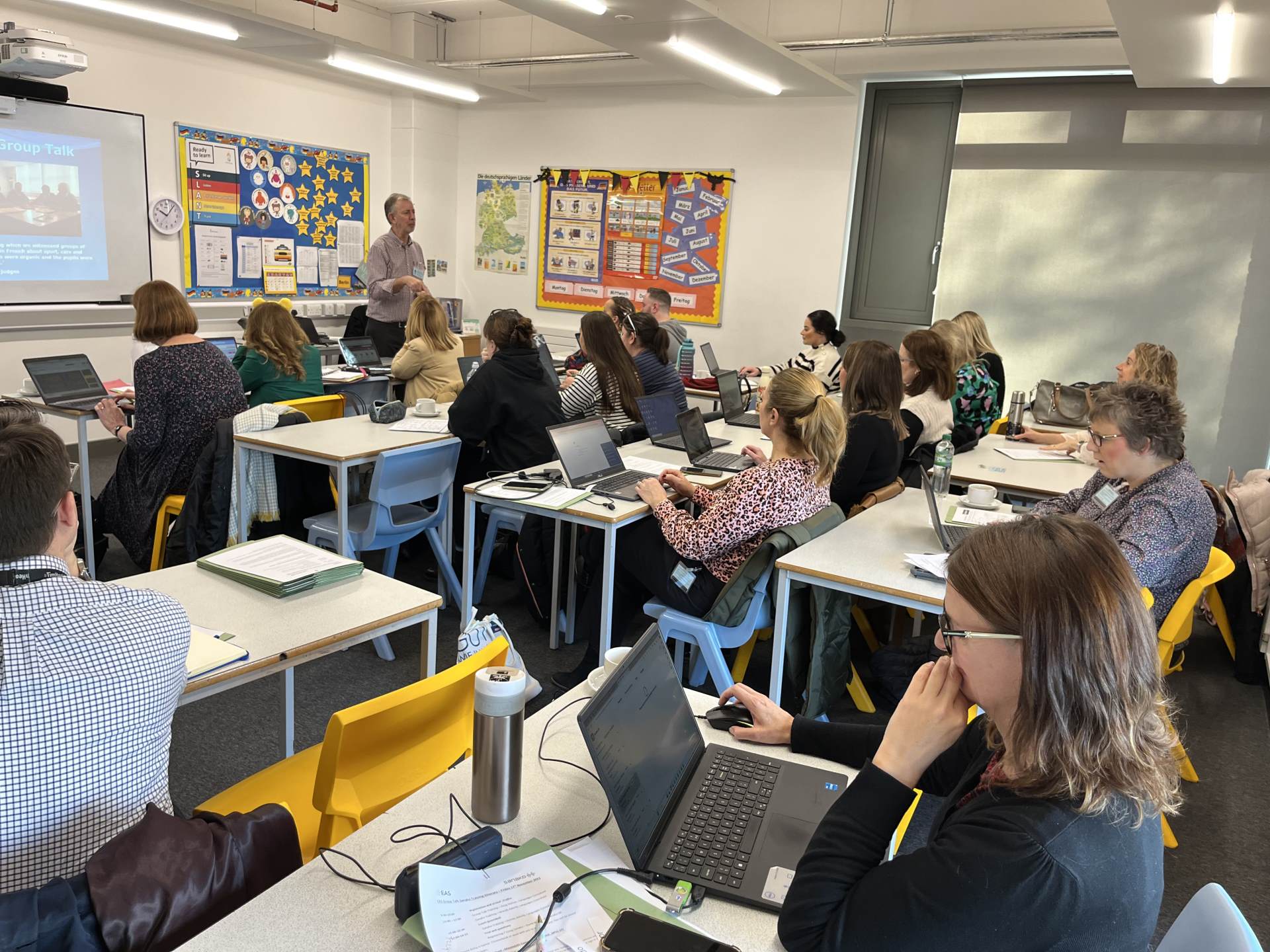 There is no one size fits all when it comes to the teaching of languages. MFL teacher should be encouraged to use the most flexible technology and pedagogical approach which most meets their needs, and online technology can really overcome so many hurdles in an environment which students are familiar with.
There is no one size fits all when it comes to the teaching of languages. MFL teacher should be encouraged to use the most flexible technology and pedagogical approach which most meets their needs, and online technology can really overcome so many hurdles in an environment which students are familiar with.

Famous for it's long history of building advanced language centres, our pioneering MFL technology has advanced to meet the needs of today's language teacher. Our most popular system, Sanako Connect, allows teachers and students to work on any device, in any location and at any time (BYOD). With live audio & video streaming, ChatGPT & AI elements along with a full GCSE editable content package, Sanako Connect was the obvious platform for this exciting Group Talk project.

Launched to a group of 13 secondary schools in South Wales by the architect of the Group Talk initiative, Mr Greg Horton, who is himself a very experienced MFL teacher, the target was simply to get students speaking and listening and have a date in a target language. His results were very impressive.
Although in the 1990's the Group Talk activity was carried out with pieces of paper and overhead projectors with a proven track record, by 2023 the teachers of International Languages and also Welsh were encouraged to bring their own devices to experience the same pedagogical approach but with the enhancement of the Sanako Connect digital platform for integrating students and teachers and sharing resources.
Languages consultant and ex MFL teacher, head of department and school principal, Wendy Adeniji, who is supporting the project continues.
Group Talk is making a comeback!
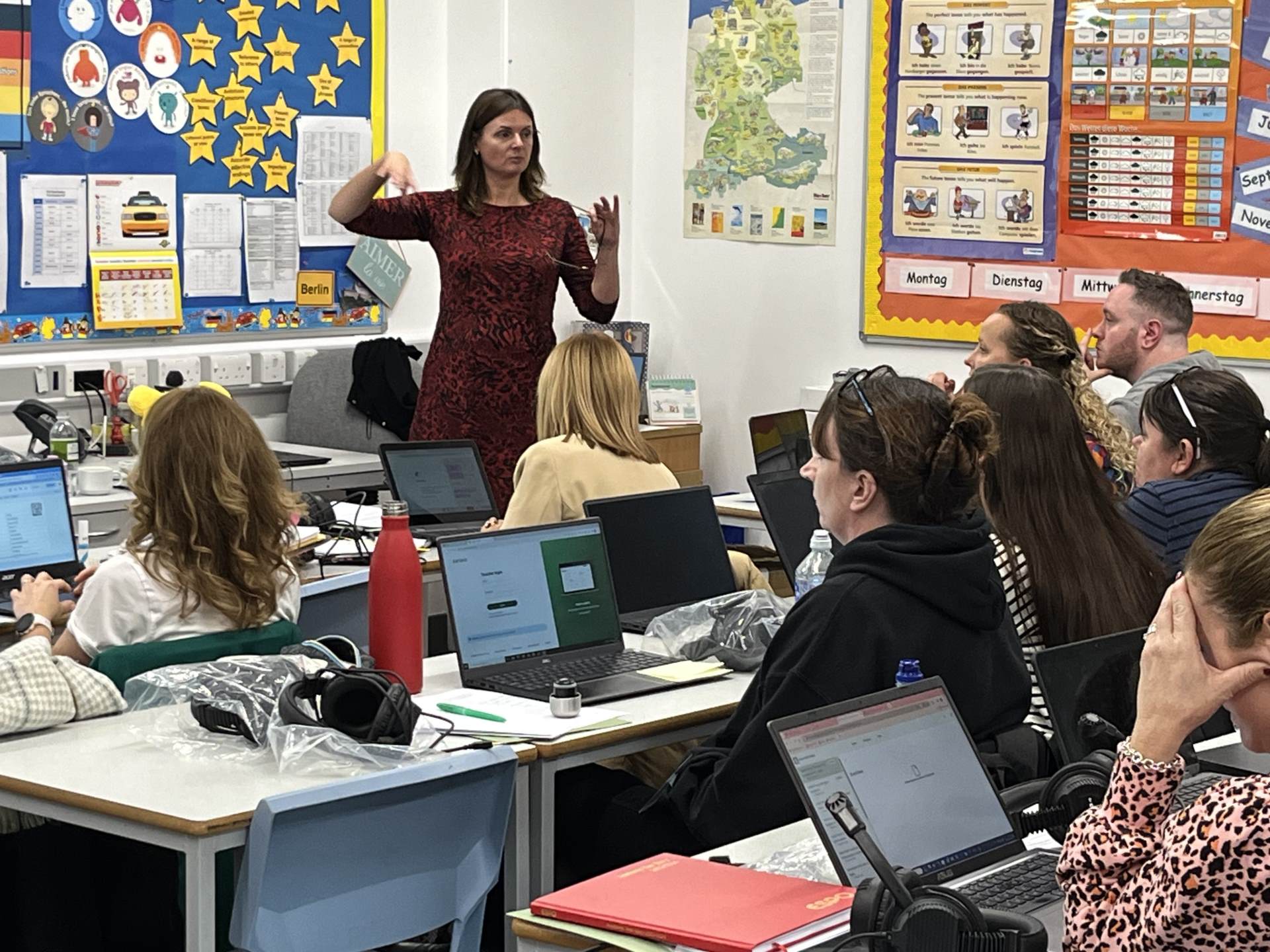 A couple of months ago a question ‘Can Group Talk make a comeback?’
A couple of months ago a question ‘Can Group Talk make a comeback?’
The question was emphatically answered last week in South Wales with a group of MFL and Welsh language teachers – it most definitely can. Greg Horton and I ran a training session to support teachers to use the Group Talk methodology in classes, supported by Sanako Connect software, to help students to improve their pronunciation independently with feedback from the technology, the opportunity to rehearse key sentence stems independently and the ability for teachers to listen to students’ recorded group talk conversations and provide feedback.
Group Talk is born of a dissatisfaction with current speaking activities in lessons, which often do not motivate students, such as exchanges are often being rehearsed and formulaic, an emphasis often on task-completion where only specific vocabulary and structures seem valid and few opportunities for students to use language spontaneously.
In contrast, with Group Talk, only the target language is spoken by students to students, interaction happens between a small group of students, tasks demand opinion, conjecture and debate, language is often colloquial, responses are spontaneous, there is no set finishing line and students can be themselves!
There are four stages of Group Talk:
THE STAGES 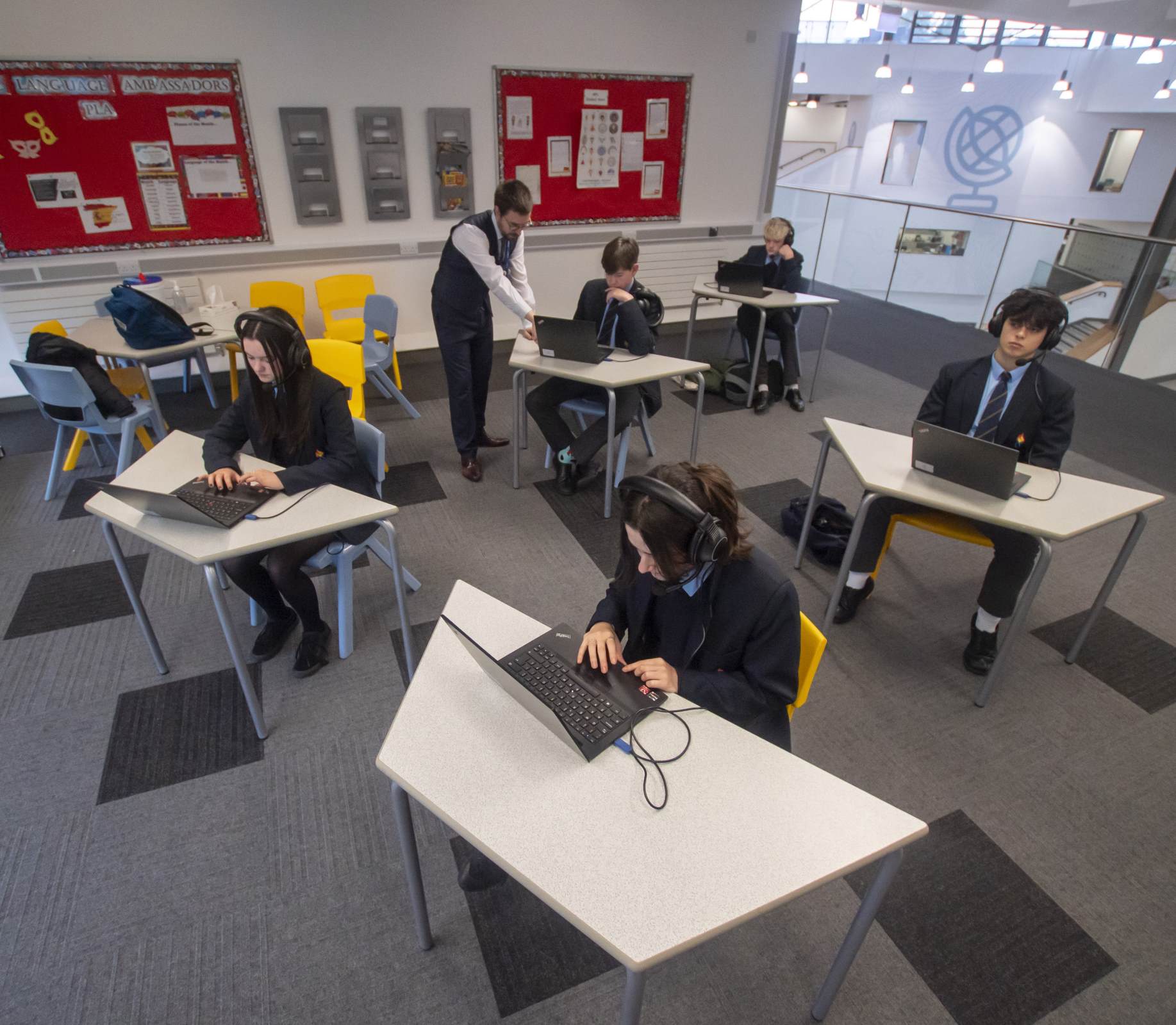 OF GROUP TALK
OF GROUP TALK
Stage 1 Y7
Taking part in a short spontaneous discussion
Independently sustaining target language interaction
Use simple expressions of conjecture
Stage 2 Y8/9
Developing conversational confidence and spontaneity
Becoming an effective questioner
Using conversational devices
Stage 3 Y9/10
Using appropriate forms of address
Making comparisons
Talking across time frames
Stage 4 Y10/11
Developing a line of thought
Expressing more detailed and balanced views
Listening for detail, processing and responding
How and when should we use Group Talk?
It’s ideal to start in Y7, so that students can gradually build on the language they’ve learnt and develop in confidence. My most successful experience was introducing it in Y7 and using it every 2 weeks with the same class that I took through the GCSE. They became extremely confident in speaking and had the best results I’ve ever had in speaking. You can start at a later time if you prefer though. You will need a launch lesson to introduce students to the key language they will need to use. Here’s an example of a GT progression chart in French for stage 1 in French:
Introduce simple opinions: Je pense que c’est (bien)
Elicit simple opinions: Et toi? Tu aimes ? Que penses-tu de ?
Express simple (dis)agreement: Oui, moi aussi. Non, pas moi. (je suis) d’accord ou pas d’accord.
Use the phrase ‘I don’t know’ as an authentic response: Je ne sais pas
Use some basic colloquialisms: Tu rigoles!
This post is part 1 of 4. My next post will provide more detail about the launch lesson, motivating themes for students to discuss, and more language for the other GT stages. Follow me on linkedin.com/in/wendy-adeniji-04525b28
All the teachers simply logged into Sanako Connect as students and had first hand experience of:
- Live audio & video streaming for Group Talk activities.
- AI enhanced pronunciation practice, with instant feedback, in French, Spanish, German and Welsh.
- Had access to full GCSE or WJEC editable content which could be used in synchronous or asynchronous modes.
- Carried live speaking and listening via a random role play activity with recording collection.
- Learnt how to carry out a whole class oral assessment simultaneously to save time & money.
- How to use their own devices, such as mobile phones, to create auto voice insert activities such as video selfie interviews.
- AI enhanced gap fill, vocab tests, sentence builders, translation & transcription techniques.
- plus many more.
Examples of AI Enhanced Welsh Pronunciation Technology
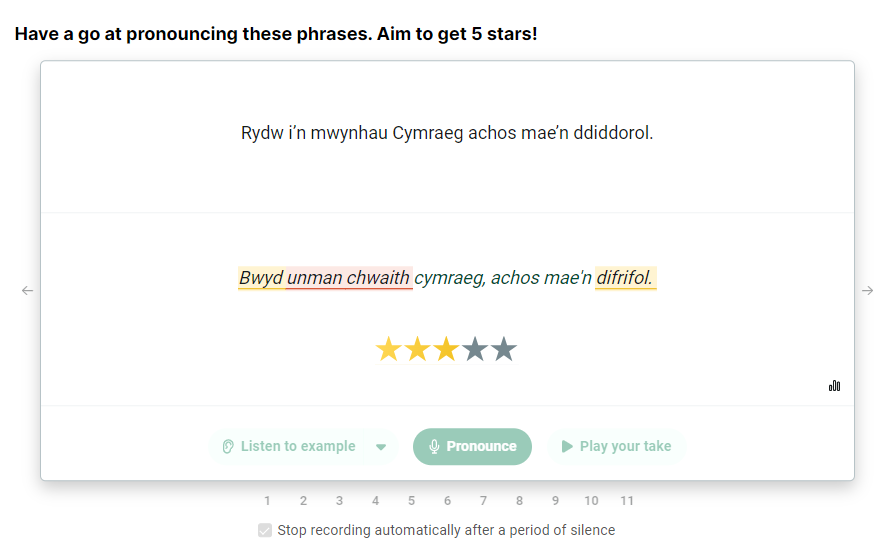
Examples of AI Enhanced Spanish Pronunciation Technology
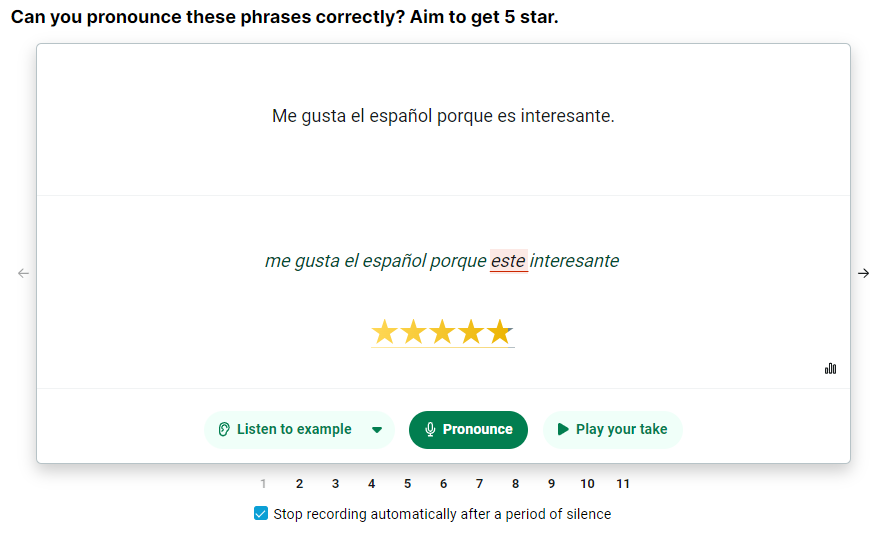
For further information on this exciting project, or would simply like to learn more about Sanako Connect Online please contact us at the Sanako UK office



